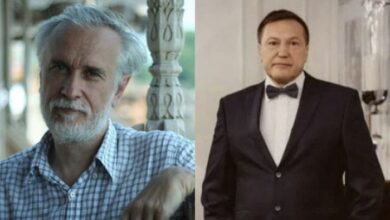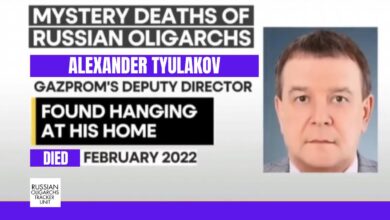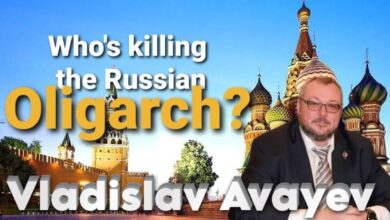Russian Minister Pyotr Kucherenko Death Shrouded in Mystery After Cuba Trip
Russian Minister Pyotr Kucherenko’s Obituary and Funeral Arrangements: While the exact cause of Russian Minister Pyotr Kucherenko’s passing remains undisclosed, his family suspects it may have been related to a heart condition. Discover more about the former Deputy Minister of Science and Higher Education in Russia.
Russian Minister Pyotr Kucherenko held the position of Deputy Minister of Science and Higher Education in the Russian Federation. Additionally, he served as a professor at the RUDN Law Institute and held a Doctor of Law degree from Moscow. He dedicated his expertise to teaching in the field of city law at the institute.
Who was the Russian Deputy Minister?
The recent and unexpected death of Russian Minister Pyotr Kucherenko, who served as the Deputy Minister of Science and Higher Education, has become a widely discussed topic in the media. Many people are keen to learn more about Pyotr Kucherenko’s Wikipedia page and his age at the time of his passing.
This prominent figure in both politics and journalism was born in the 1970s, specifically in 1977, and tragically, he was only 46 years old when he passed away. Despite his notable career, there is limited and somewhat unreliable personal information available online regarding this Russian deputy education minister.
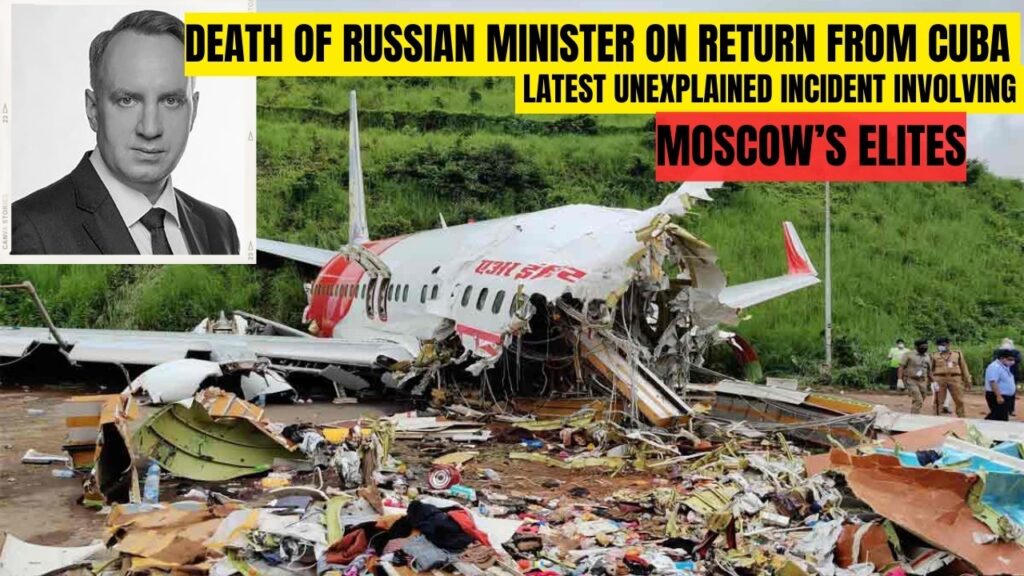
Pyotr Kucherenko was a citizen of the Russian Federation and had a remarkable political journey. He began his career as an assistant to a member of the Council of the Federation and later served as an assistant to a senator in the State Duma. His involvement in politics dates back to the period between 1999 and 2001 when he also served as an assistant to a Member of Parliament.
Furthermore, he held the position of executive director at the Diana Gurtskaya Charitable Fund, ‘Po Zovu Serdtsa.’ Additionally, he was actively engaged with the People’s Friendship University of Russia.
Russian Minister Pyotr Kucherenko Family
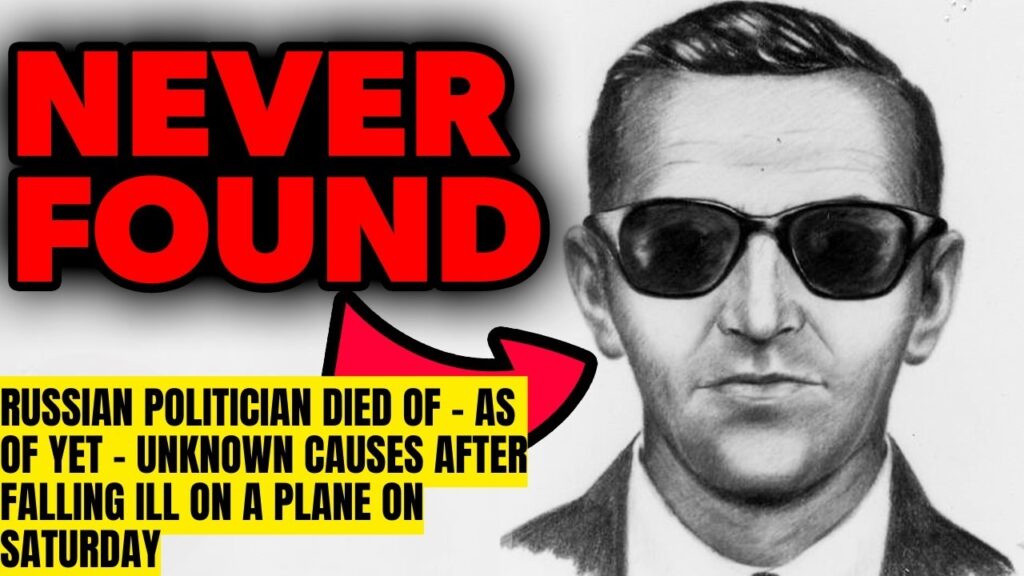
Pyotr Kcuherenko, the Russian Deputy Education Minister, was married to Diana Gurtskaya, a celebrated blind pop vocalist renowned for her exceptional musical talent. In 2008, Diana Gurtskaya distinguished herself as one of the standout performers, becoming the second-ever representative at the Eurovision Song Contest held in Georgia. Her entry, titled “Peace Will Come,” garnered significant acclaim.
Additionally, Diana Gurtskaya was honoured with the esteemed designation of People’s Artist of the Russian Federation, which stands as the highest recognition granted to individuals in Russia in recognition of their outstanding contributions to the fields of arts and culture. This prestigious title serves as a testament to her remarkable impact on the cultural landscape of the nation, acknowledging her significant and enduring influence in these domains.
How did Pyotr Kucherenko die?
The Deputy Minister fell ill on a Saturday while he was on his way back from a business trip to Cuba, accompanying a Russian delegation, aboard a flight. The flight had to make an emergency landing in Mineralnye Vody to provide medical assistance to him. Despite the efforts made, unfortunately, he could not be saved.
Furthermore, the family of the politician has suggested that his death might have been a result of a heart condition. However, the true cause of his death may become clearer once the results of the forensic examination are available.
A friend of the minister revealed that he had recently spoken with the minister, who had mentioned having trouble sleeping and taking a handful of antidepressant pills and tranquilizers.
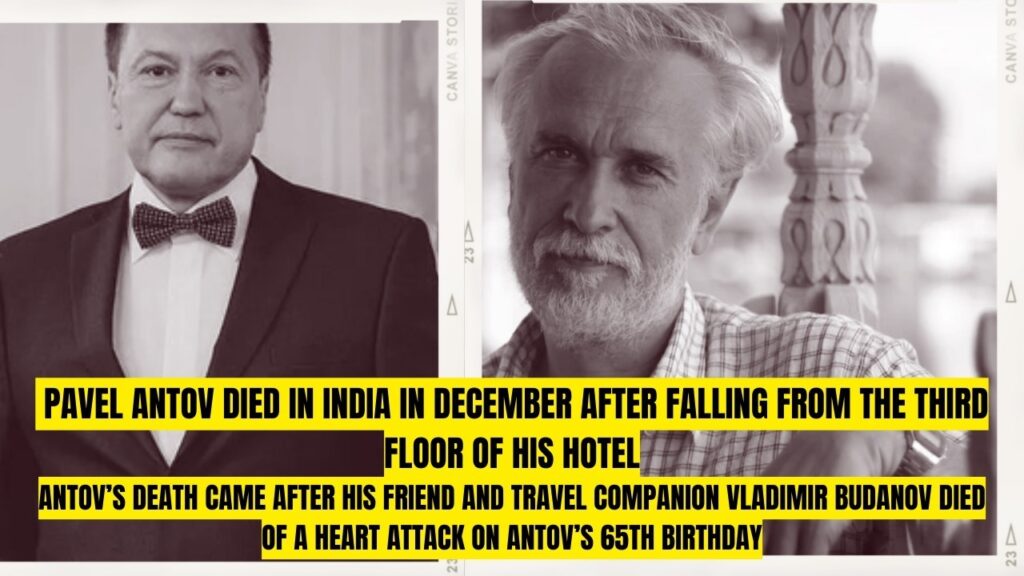
Additionally, there has been growing concern due to the mysterious deaths of several high-profile individuals since the Russian invasion last year. Similarly, there has been speculation surrounding the death of a journalist who passed away a month after reporting on the Ukraine invasion during the war.
Other mysterious Russian deaths or attacks surrounding Putin
Boris Nemtsov
In 2015, Boris Nemtsov, a prominent Russian opposition figure known for his strong criticism of the Putin administration, was fatally shot in an assault that took place on a bridge within sight of the Kremlin.
- He met his demise just a few days prior to his scheduled leadership of an uncommon public demonstration against Russia’s takeover of Ukraine’s Crimean area and its backing of separatist activities in eastern Ukraine’s Donbas region.
- The Kremlin disavowed any participation, while in 2017, a Russian court found five individuals guilty of Nemtsov’s murder in a trial that his family labeled as an attempt to conceal the truth.
- In the years that followed, it came to light that a government agent working with a group that carried out assassinations had been closely watching him in the months before his death.
Alexei Navalny
The leader of the opposition, Navalny, who is currently incarcerated for approximately three decades, was poisoned in August 2020 using a potent nerve agent known as Novichok, a product of Soviet Union’s research and development.
- The Kremlin claimed no responsibility, but later inquiries conducted by Bellingcat revealed that the individuals behind the assault were affiliated with Russia’s Federal Security Service (FSB) and that the decision to poison him had come from the highest levels of the Kremlin.
Alexander Litvinenko:
In 2006, Litvinenko, a former KGB agent turned whistleblower, passed away in the United Kingdom as a result of poisoning with a scarce and extremely radioactive substance known as polonium-210.
- Once more, Russia has refused any participation, yet both the United Kingdom and the European Court of Human Rights have reached the determination that Russia likely played a role. The UK investigation even went as far as suggesting that Putin “likely sanctioned” the assassination of Litvinenko.
- One of the indications suggesting the Kremlin’s participation is the observation that nearly all the global supply of polonium-210 originates from state-managed nuclear facilities in Russia, where nuclear authorities have emphasized strict oversight over access to this element.
Sergei Skripal:
In 2018, Skripal, a former Russian intelligence operative residing in the United Kingdom, along with his daughter, fell victim to an assault in Salisbury. They were targeted with a nerve agent that bore a resemblance to the substance employed in the attack against Navalny.
- Skripal and his daughter managed to survive, but a British citizen lost their life, and several others were harmed when they encountered a perfume container suspected to be linked to the incident.
- The United States, the United Kingdom, and several other countries have jointly determined that individuals affiliated with the Russian military intelligence agency were responsible for the poisonings. Furthermore, the United Kingdom has formally accused three members of this agency in connection with the incidents.
Yuri Shchekochikhin:
In July 2003, Russian investigative journalist and liberal lawmaker Shchekochikhin experienced a sudden illness and passed away. Doctors at a hospital associated with the Kremlin stated at the time that his cause of death was attributed to a severe allergic reaction.
- His family members have reported that Shchekochikhin endured a harrowing 12-day period characterized by excruciating pain, during which his skin progressively peeled off, his hair fell out, and his organs suffered successive failures.
- When they requested access to Shchekochikhin’s medical records, medical professionals informed his family that these documents were being held by prosecutors, citing them as a “medical secret.” This was in relation to an investigation that would not be initiated until several years later.
- In the years leading up to his demise, Shchekochikhin had published investigative reports exposing a smuggling operation, money laundering activities, and a corruption scandal involving high-ranking FSB (Federal Security Service) agents.
- Additionally, he had been delving into the potential involvement of the FSB in the 1999 Moscow apartment bombings, an event that played a part in triggering the Second Chechen War.
Anna Politkovskaya
In October 2006, Anna Politkovskaya, a Russian journalist and advocate for human rights, was fatally shot in her residence located in Moscow.
- She had documented human rights abuses during the Second Chechen War and authored a book in 2004, asserting that Putin, via the FSB, was suppressing civil liberties to steer the nation toward a Soviet-style dictatorship before she passed away.
- In 2014, a Moscow court convicted five men for her murder, but the identity of the individual who ordered her assassination was never determined.
Multiple Russian oligarchs and executives also died :
According to a report from The New York Times, a number of prominent Russian oligarchs and high-ranking executives have met untimely deaths in perplexing circumstances, including suicides and accidents, since the commencement of Russia’s invasion of Ukraine.
- Ravil Maganov, who held the position of Chairman of the Board at Lukoil, a prominent Russian conglomerate, experienced a tragic and unexpected demise in September 2022. This unfortunate incident occurred when he fell from a hospital window in Moscow. The circumstances surrounding his death garnered significant attention and controversy in Russia and beyond.
- Russian media initially reported that Ravil Maganov had taken his own life, implying that it was a case of suicide. However, in response to these reports, Lukoil released an official statement following his passing. According to the company’s statement, Maganov did not succumb to suicide but rather passed away as a result of a severe illness.
The sudden and perplexing nature of Maganov’s death, along with the contrasting narratives presented by the media and Lukoil, added an extra layer of complexity to this tragic event. It raised questions and speculation within both the business community and the public, leaving many seeking further information and clarity about the circumstances surrounding the loss of a key figure in one of Russia’s largest private corporations.




